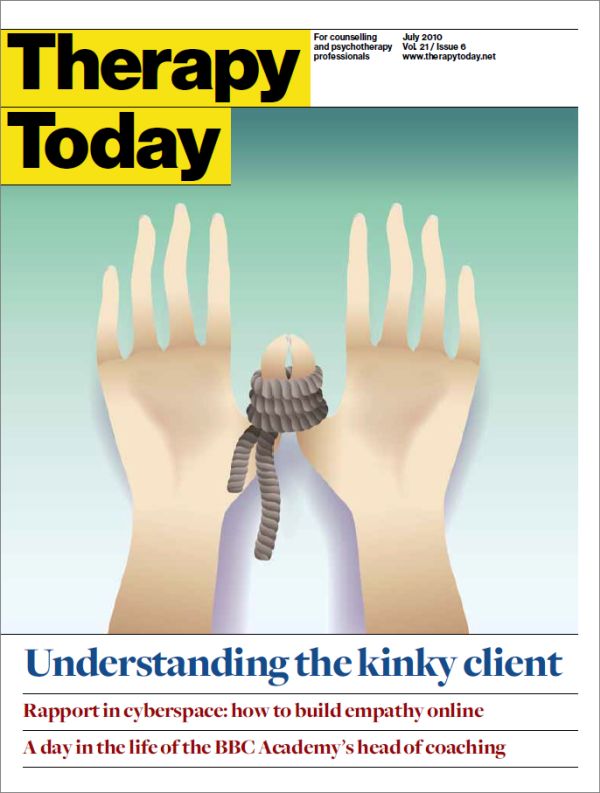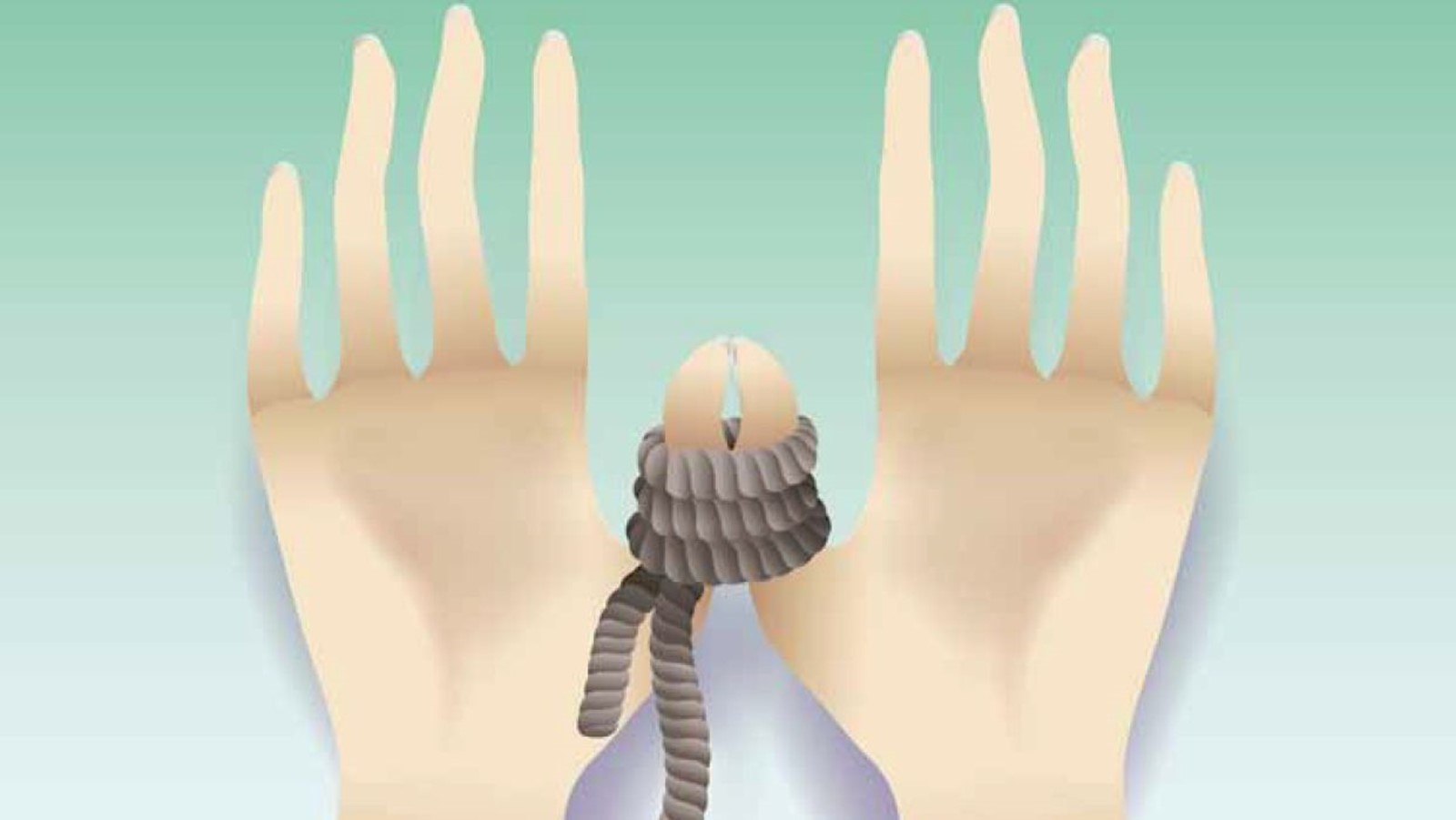In this issue
Features
A kink in the process
Why more counsellors and therapists should be prepared to work with BDSM (bondage and discipline, dominance and submission, sadism and masochism) clients within a non-judgemental and non-pathologising approach
Rapport in cyberspace
In the absence of body language, voice tone and presence, how can online therapists build rapport with their clients?
Defining moments
Continuing the regulation debate, one BACP member argues for the de-medicalisation of life and for therapy as a human potential model
Destroying client records
In the absence of guidance, what options does the practitioner have in the destruction of client records?
Regulars
In practice
Kevin Chandler: A pile of dead leaves
In the client's chair
Emma Munro: Walking alone
In training
Martin Halifax: Endings and beginnings
Questionnaire
Paul Gilbert
Dilemmas
Maintaining confidentiality
Day in the life
Liz Macann

Articles from this issue are not yet available online. Members and subscribers can download the pdf from the Therapy Today archive.
Editorial
I was staggered when I realised recently that this is my 100th issue of Therapy Today. Some of the debates that were raging a decade ago, are still with us. For example, one of my first tasks when I began working for the journal was to write an article (a rather naïve one at that) about how regulation was sure to be in place by 2003 – at the very latest!
We have covered many topics in the past 100 issues but have not to my knowledge touched on the subject of sadomasochism. One study has reported that 14 per cent of men and 11 per cent of women have personal experience of sadomasochistic sex so the chances of someone walking into our consulting room who identifies as kinky are quite high. Unless we have personal experience of the world of kink, we are unlikely to be confident to work with a client who discloses in therapy that they are exploring this aspect of their sexuality. Su Connan argues that offering therapy to those who identify as kinky raises questions for the therapeutic community such as those that have been raised by the gay community around the need for awareness, training, ethical practice and supervision. Clients need therapists who are not going to be shocked or make them feel judged or indeed who will categorise them as pathological or sexually deviant and in need of treatment and cure. In order to be able to offer ethical therapy to these clients, Su argues, practitioners need to deepen their own knowledge and understanding of the kink experience and of the meanings that sadomasochistic sex has for those who incorporate it into their lives.
The hunt is on for some new columnists as we say goodbye in this issue to our client Emma Munro who has shared her therapy journey with us for the last 18 months, and Martin Halifax who has reached the end of his counselling and psychotherapy diploma. If you know people who might fill either of these roles, please get in touch.
Sarah Browne
Editor
